Book Review: "Among the Trolls" by Marianna Spring
5/5 - absolutely one of the best nonfiction books of the year...
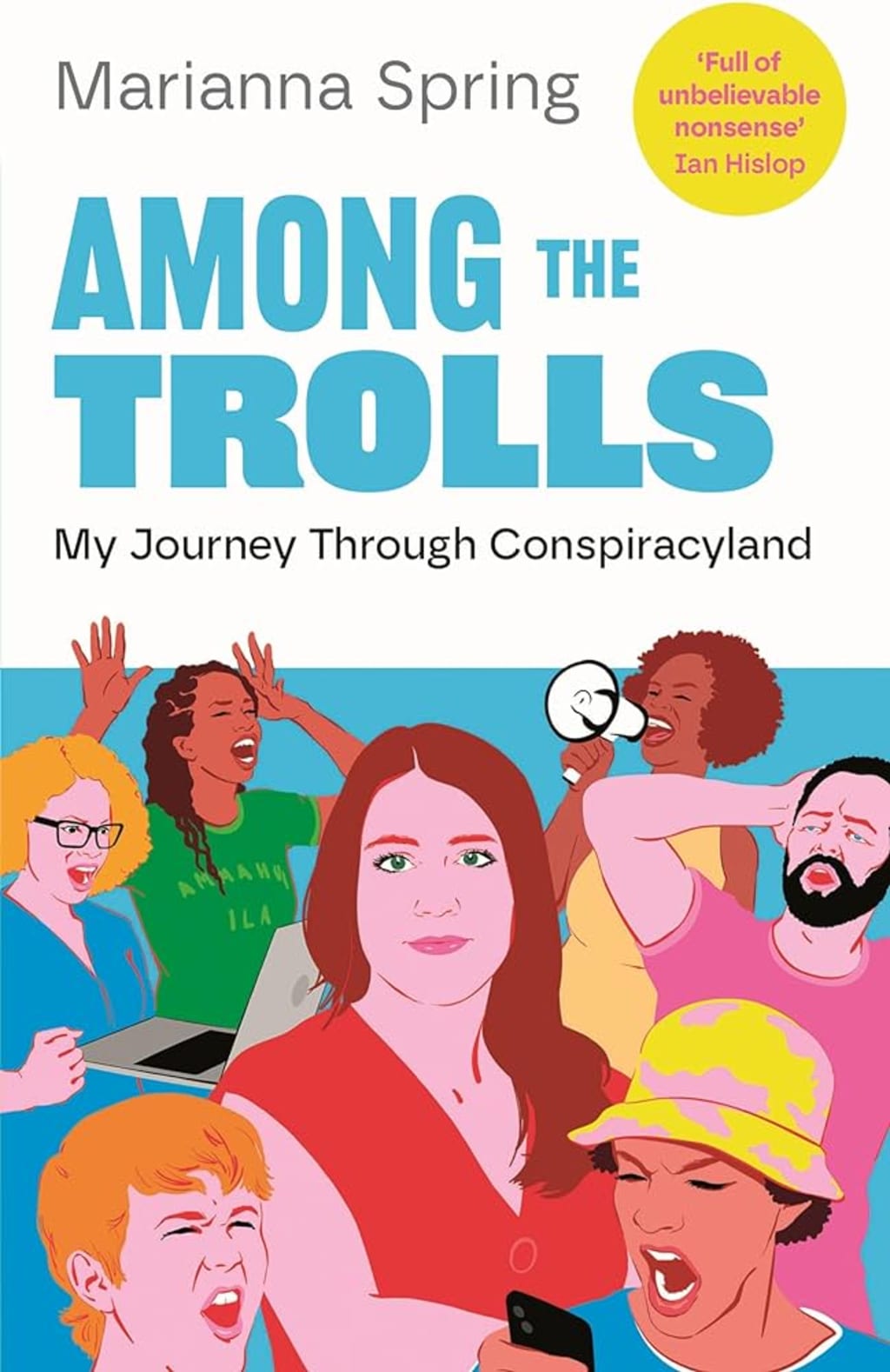
Full Title: Among the Trolls: My Journey Through Conspiracyland by Marianna Spring
Marianna Spring has written her debut investigatory book into the world of conspiracy theorists and strange online beliefs, what spurs them on and why they even exist. She defines and investigates each separate theory with wit and research, giving the reader an in-depth view of the world inside these people who believe the strangest and most outlandish things. Be that as it may, she finds that these people are not all bad people in a lot of ways, but instead are people who fear that the changing world is out of their control or understanding and require someone to blame for things going upside-down. The anxieties of conspiracy theorist groups find schemes and evil plans in every facet of life and thus, spiral down further and further into a rabbit hole of oddity.
There is no doubt whatsoever that the resurfacing and awakening of new and inventive conspiracy theories was spurned on and propelled by the pandemic. The more people spent chronically online, the more they got sucked into these rabbit holes. And, with little else to do, it was probably more difficult to stop than it was to start in the first place. Obviously, the more content someone consumes the more they believe what they are consuming mainly because they are not consuming any counter points of view.
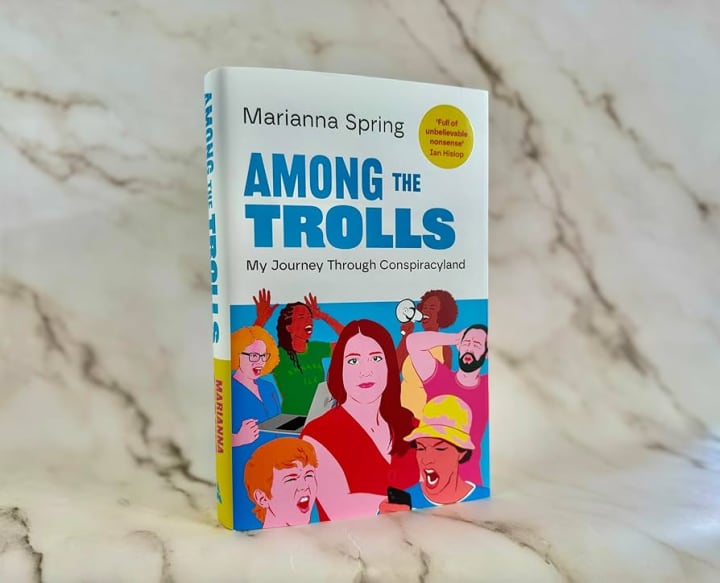
Marianna Spring outlines this in a very interesting way where she looks at research, delves into the various conspiracy theories from the pandemic and investigates how these theories play especially on the anxieties of people who believe everything is out of their control. Written in a fun and yet a journalistic and research-heavy way, she views it from every angle. She looks at what the conspiracy theory actually is, she focuses on particular people who believe in it (and changes their names for anonymity purposes), she looks at the psychology behind the theory and the 'whys' about the belief and finally, she confronts the hard truths about these theories that make them quite frankly, impossible.
She emphasises that these people are not particular horrible in any real way but they have been sold and sold over and over again a dishonest view of what is really going on out in the world. Often, it is unknown whether the person selling the lie believes it themselves or whether they are just doing it because they know it gets them views, likes and engagement - often translating into financial gain of some kind. There are layers of dishonesty that therefore must be unpacked.
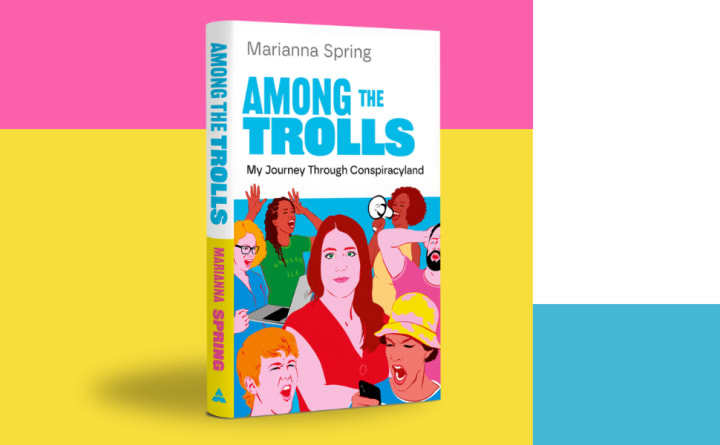
One thing I found quite funny in the book was when she started talking about the infamous QAnon theories and their believers. I admit they may not all be bad people, but they are not the brightest bunch which makes it even funnier in my opinion. However, one thing that Marianna Spring does is talke us through the amount of damage that a simply theory that started on social media can cause. Of course, it was the planned (and failed) coup d'etat that happened in America in the January of 2021.
Another thing I quite enjoyed about this book was when she started talking about a boy who had basically cut off contact with his mother because she was a crazy conspiracy theorist. This woman believed and was peddling some next level David Icke kind of stuff. Her son, Sebastian, was very sure that his mother was not going to come back from that edge any time soon and the author explains why that might be in a statement relating to narcissistic personalities and their preoccupation with power. But one thing that is true for both conspiracy theorists and the narcissistic personality type is a sheer lack of empathy. It's one underlying thing we see in the book constantly from conspiracy theorists such as: Hall, Jones and now, Shemirani - who all exhibit a painful lack of empathy towards the victims of events that these people say never happened.

One thing is for sure though, there is a big difference between the people who propel the conspiracy theory and the people who simply believe in it. Those who believe in it are probably not wanting to hurt anyone most of the time, but it only takes one bad egg to do something horrific in the name of alternative wacky beliefs to make everyone, regardless of morality, look like awful human beings. Also, the people leading the conspiracy group and propelling these theories are often no more than heartless cowards who wish to make a gain at the expense of everyone else. Evidence for this is shown very carefully in the Alex Jones/Sandy Hook scandal which rocked the conspiracy theory world because it was so largerly based on absolutely nothing that when investigated, was shown to be present because it got (hopefully defunct) InfoWars views on their YouTube channel.
I think that the author is right to say that conspiracy theories are based off a lack of evidence and eventually, become really hard to follow. The person reading the theories needs to be committed to reading them in order to understand them. For example: I have never really bothered with learning about conspiracy theories mainly because they get boring really quickly.

In the chapter The Life of a Lie, Spring entertains us with how these conspiracy theories spread online - looking at the evidence as to how 'into' the theory one has to be to become involved and disappear down the metaphorical rabbit hole. She also looks at what history has to offer about why people believe in these alternative theories with little evidence. Earlier on in the book, she references folklore. When we get disaster, we also get weird explanations for it. She explains how social media has allowed these weird theories to go global and have done a lot of damage.
The damage starts to be seen in the further chapters when the author discusses being followed and hounded and threatened by people of particular conspiracy groups, both those who propel them and those who consume them. It is a strange one that you can also find in the works of Jon Ronson and yet, it still perplexes me about how people let this behaviour get out into the real world. But Marianna Spring explains it brilliantly.
All in all, this book is a witty, realistic, humorous but a shocking look at the world of the online trolls, the conspiracy theories they fuel and the people they hurt in the process. It looks at those who are avid consumers, those who consume by accident and those who propel the consumption of these alternative and bizarre beliefs that, through social media ultimately leads us to a global age of misinformation. Without those to expose it, like Marianna Spring, we would all be pretty much doomed.
About the Creator
Annie Kapur
200K+ Reads on Vocal.
English Lecturer
🎓Literature & Writing (B.A)
🎓Film & Writing (M.A)
🎓Secondary English Education (PgDipEd) (QTS)
📍Birmingham, UK


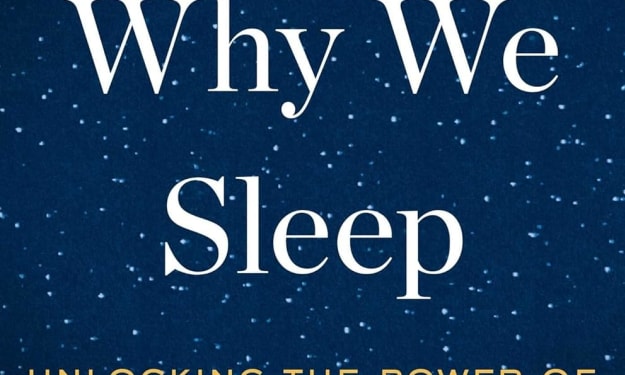

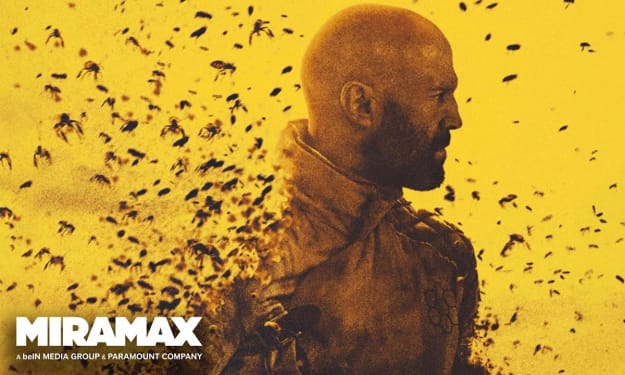

Comments (1)
It is just going to get worse in the future. We seem to like our bubbles and the worldviews they allow. Thank you for this review. I have too many books...and plans to go to an annual book fair tomorrow. Some addictions cannot wait.